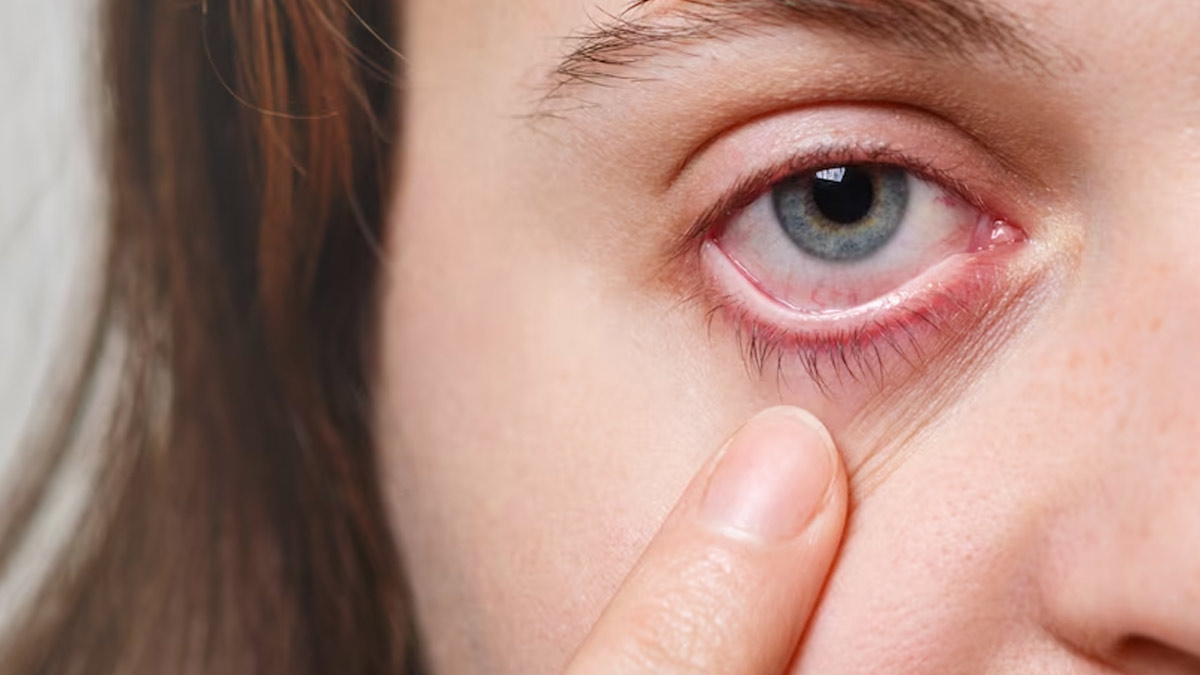
Conjunctivitis, also known as pink eye, is an eye illness brought on by a virus or bacteria. The summer heat is perfect for the propagation of bacteria and viruses, spreading the infection to other people. Additionally, chemical reactions and allergies, that aggravate during the summer, can also result in conjunctivitis. Dr Ajay Sharma, Chief Medical Director, EyeQ, provides tips to reduce the risk of conjunctivitis in summer.
Table of Content:-
Signs of Conjunctivitis

According to Dr Sharma, "The diagnosis of conjunctivitis can be challenging." The most typical signs of conjunctivitis are red and moist eyes, irritation and discomfort in the eyes, and discharge around the eyes during the morning.
Also Read: Summer Eye Care: Here's How You Can Protect Them From The Sun
Tips for Avoiding Conjunctivitis in the Summer
The expert said, "Conjunctivitis is extremely contagious, so it spreads quickly from one person to another. Thus, you must take precautions to completely avoid conjunctivitis, as it is more common in the summer."
Here are some expert tips for avoiding conjunctivitis in the summer:
Frequently Wash Your Hands

"The first step in defending yourself against all types of viruses and germs is maintaining good hygiene," said Dr Sharma. He advised washing hands frequently during the day, especially if you spend a lot of time outside.
Keep Your Hands Away From Your Eyes
Your hands are the most direct route for bacteria and viruses to reach your eyes. Dr Sharma said, "Even if you wash your hands frequently throughout the day, you should still refrain from touching your face and eyes, preventing the risk of conjunctivitis."
Apply a Fresh Cloth to Your Face
Towels are a further convenient route for bacteria and viruses to reach your eyes. Your towel or cleaning cloth directly comes into contact with your eyes. When the towel stays damp and is not changed every day, bacteria may easily develop on it, increasing the risk of eye infection.
Avoid Sharing Towels

Dr Sharma said, "As was stated at the outset, conjunctivitis is very contagious and quickly spread from one person to another. Never use another person's towels, even if they don't have conjunctivitis symptoms."
Also Read: Summer Eye Care For Aging Adults: Expert Tips To Maintain Eye Health And Vision
Don't Apply The Makeup Once It Has Expired
Many people use cosmetics that have exceeded their expiration date. "Conjunctivitis and other skin conditions, such as acne and allergies, can result from using makeup after its expiration date," said Dr Sharma.
Check Before Using Eye Medications

Dr Sharma recommended constantly checking the expiration date of your eye-related medications before using them, much like with makeup. Just like expired skin care products, expired medication may also lead to eye problems, like conjunctivitis.
Frequently Replace Pillow covers
Another thing that directly touches our face is your pillow. Dr Sharma said, "Long-term use of unwashed pillows can lead to the growth of bacteria and viruses. By cleaning your pillow covers timely, you can avoid conjunctivitis and infections of the nose, mouth, or face.
Bottomline
Conjunctivitis can result in eye inflammation and pain. But by following these expert tips, you can protect yourself from many viruses and germs that may influence a variety of other choices. The key is to maintain good hygiene and avoid touching your eyes.
Image Credits: freepik
Also watch this video
How we keep this article up to date:
We work with experts and keep a close eye on the latest in health and wellness. Whenever there is a new research or helpful information, we update our articles with accurate and useful advice.
Current Version